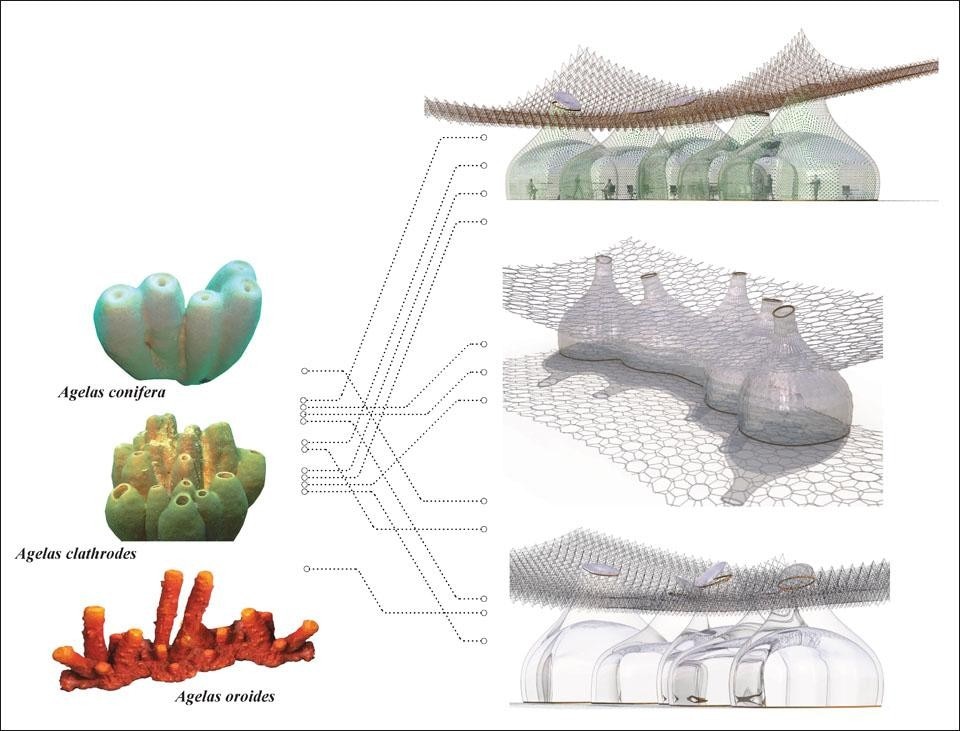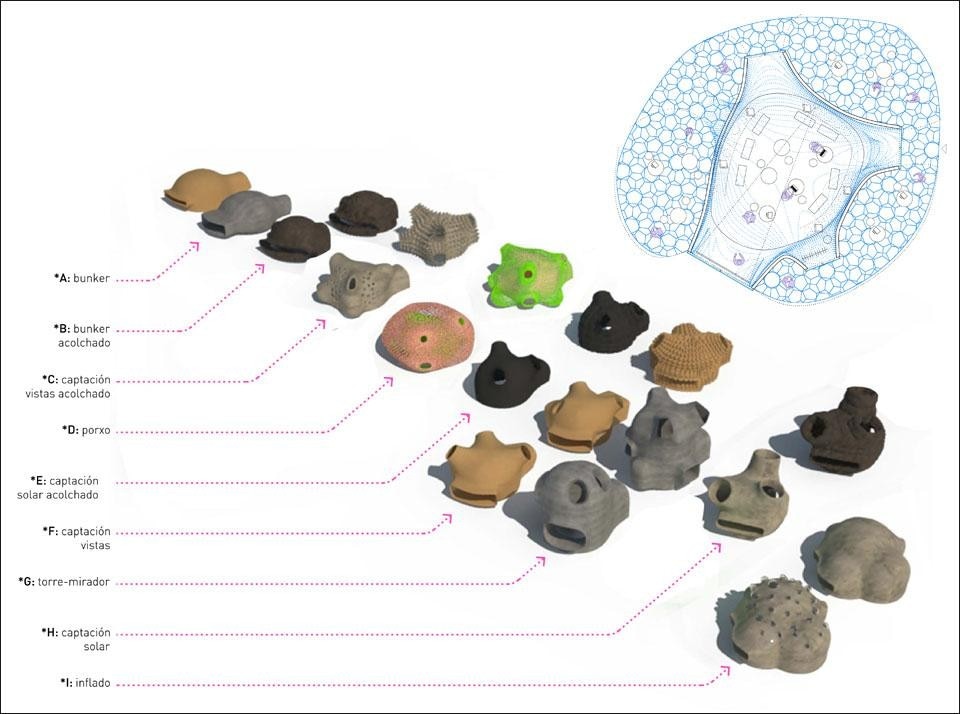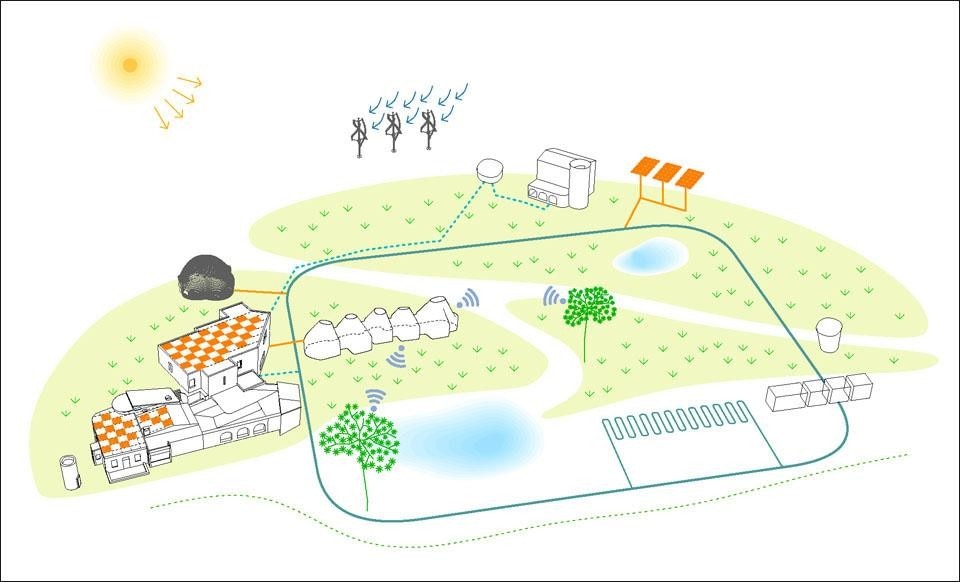Had Adrià been an architect, he would have probably joined the pantheon of deconstructivist masters. His emotive, vibrant scientific approach to food has spawned new dish typologies—edible beetroot, mushroom and potato foam for example—and certainly broken down forever pristine barriers between sweet and sour. As of July 2011 elBulli will close, undergo its own reinvention and reopen in 2014 at the same location as elBulliFoundation, a laboratory for Adrìa's cuisine culture, designed by Enric Ruiz-Geli of Cloud 9, architect of the new Media-TIC in Barcelona.

Ferran Adrià: elBulliFoundation is consistent with our past ethos of evolutionary development. It will be a private, non-profit foundation for all avant-garde gastronomy lovers, chefs, sommeliers, front-of-house professionals, gourmets, creative thinkers including writers and philosophers and people from the street, too—enthusiasts of our dream. We want it to be a think tank of gastronomic creativity granting up to 25 scholarships annually for chefs and front-of-house professionals who will work with the Foundation's creative team. It won't be a school. We'll work in synergy with other disciplines such as design, art and creative communication and pursue feedback, interaction and projection beyond the world of gastronomy.
How will the wider world be exposed to the Foundation's activities?
FA: Each year's progress will be divulged via books in traditional and electronic format, A/V productions, Internet, congresses and gastronomy schools, with a simultaneous development of an encyclopedia of contemporary cuisine, an exhaustive and detailed compendium of creative methods, product studies, new elaborations, techniques, concepts and styles that have led to the evolution of cuisine in the last decades.
The Foundation has been described as the most utopian of your projects.
FA: Its success lies in people getting connected with it, it's a social project. There's no time to create in cuisine. It's the same in technology. In a normal restaurant you can't do any form of performance. For me the restaurant was always a vehicle for creating. When you are creative you need to change. We're always self-critical. Avant-garde is a term used almost flippantly, but it is necessary. We tend to be very pragmatic. The spiritual part of cuisine allows us to learn. I think the avant- garde can exist anywhere—it doesn't mean we have to reinvent the wheel. Spanish people have a passion for finding the limits for things. I'm not an extremist. I've never created dogma. Cuisine is freedom. I just like collaborating with people. We're setting up a legal economic model to make this viable, with sponsors from the world of business.
How have you responded architecturally to the concept of the elBulliFoundation?
Enric Ruiz-Geli: elBulli is a spirit, a way of seeing life. The Foundation is very much work in progress, full of experimentation. Ferran and Juli (Soler, his associate) needed a space to think, create and have ideas, with a view of the ocean. elBulli the restaurant was boxes but we saw something more mellow in the local topography. elBulli has a techno-emotional kitchen and we want its architecture to understand its culture through a techno-empathy. Programmatically elBulli Foundation is an archive, including 15 years of activity digitised, and a creative centre, one that will feature a cinema, for elBulli's ideology and experiences. We are converting the existing dining room into a historical archive about elBulli, and there will be five different 'thinking spaces.' The architecture of the Foundation will have stage spaces, each with green roofs, operating on the physical, digital and interactive level. For the cinema/brainstorming space we experimented with nineteen different parametric prototypes. Our design concept makes it a 'sister' of elBulli's kitchen—our organic, particle architecture will interpret the concept of the network via sponges and of buildings as living coral structures, for example. Jorge Wagensberg, Professor of Physics at the University of Barcelona, says that the most important thing about particles is their relationship—the relations between the CO2, photosynthesis, salinity, relative humidity, natural park, geothermal qualities. We need architecture immersed in nature, an architecture that's alive. They will be spaces with natural light, no air conditioning.

FA: Slowly I've come to fall in love with the architectural project. The idea is for shapes from the shore. There's a lot of poetry here—we don't want to be hundrum. All the buildings will be like sets because we need to change; everything needs to be adaptable. Because of its emblematic nature, the dining room will be kept intact in its current form.
How is elBulliFoundation as an entity of buildings and outdoor spaces going to achieve your ecological goals for architecture?
ER-G: Architecture is the primary cause of climate change— 40% of CO2 emissions. The future of architecture should cure climate change. elBulliFoundation is sited in a beautiful natural park whose biodiversity makes it a paradise. It will be a zero-emission pilot project in terms of sustainability, relying on wind, sun, wave and geothermal energy —a self-sustaining smart grid to make a point of self-sufficiency. Our masterplan creates an eco-neighbourhood on the site which is nearly 14 hectares. We want to protect, conserve and increase biodiversity here. Our scheme includes a seascape on the site that deals with the creation of hydrogen from algae, as part of our collaboration with Tecnalia, one of the most important companies in the Basque region. The firm does advanced research and development of biomaterials among other things, and investigates the potential of algae as an alternative biomass to generate renewable energy, optimising hydrogen technologies. Through photosensitive sensors, trees can interact with the buildings. People need pilot projects, otherwise what kind of city will we have in the future?




